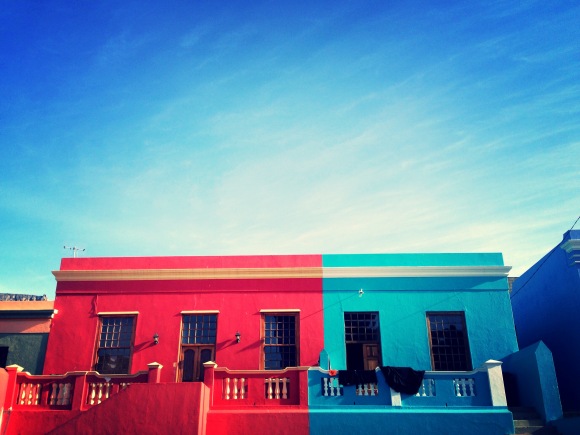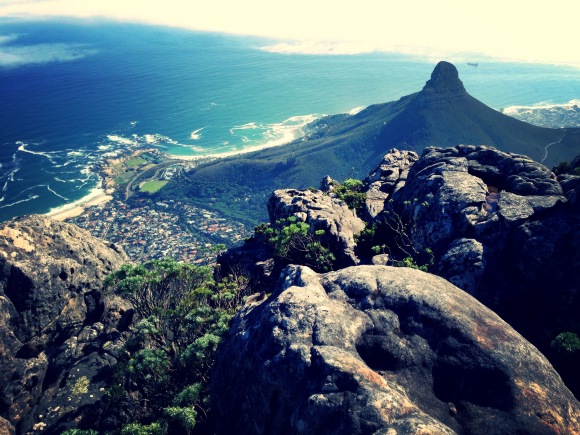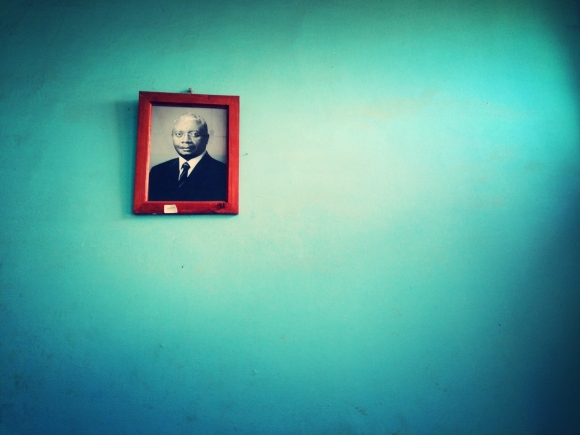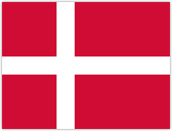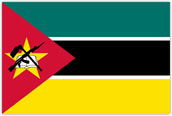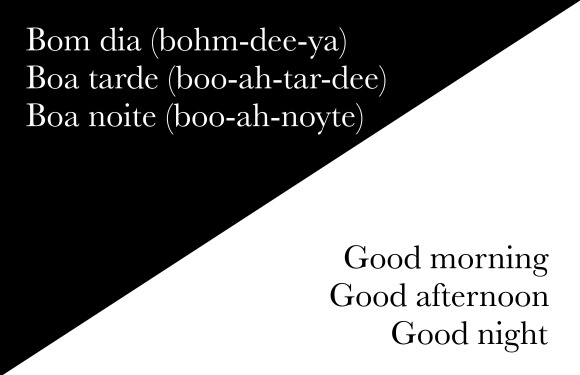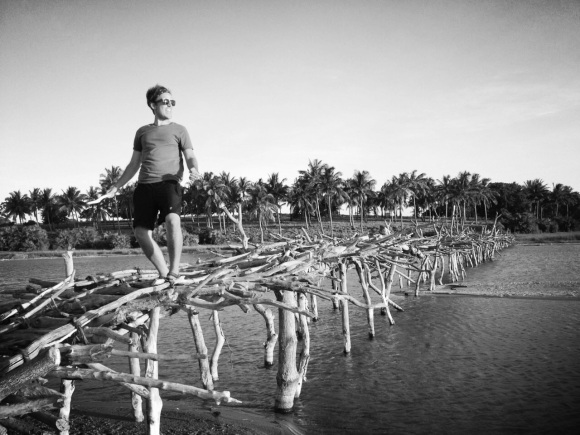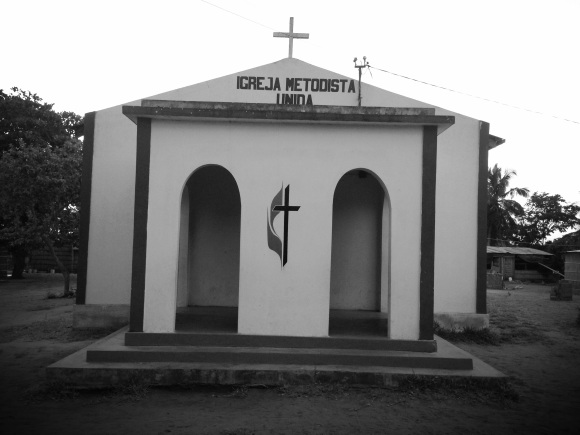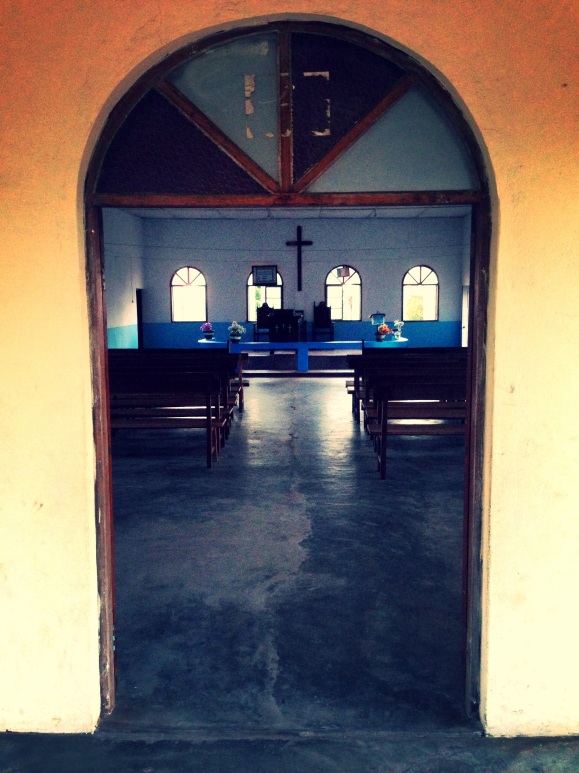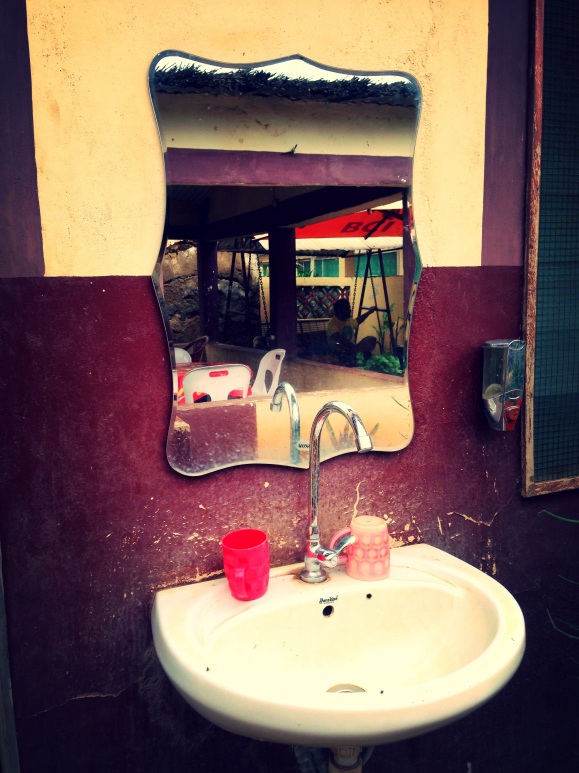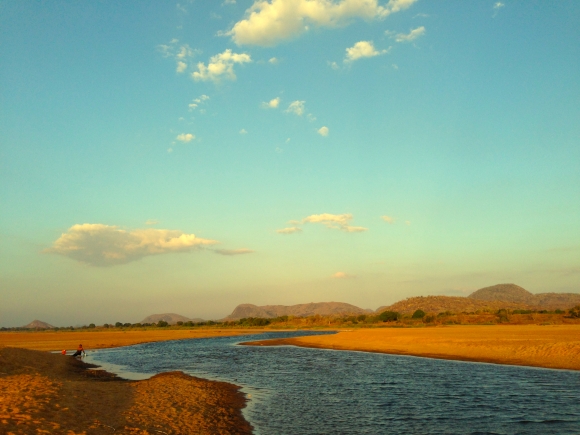The cake was delicious but decidedly Mozambican. Friends and I have always wondered why cake in Mozambique doesn’t have the same taste, the same bounce, the same squishy sensation as cake in the states. Is it the butter? The flour? The milk? Cake (bolo in Portuguese) belongs alongside bread, rice, and salad as a staple food item in the country. You can’t go anywhere without seeing small cakes being sold along the road by men, women, and children looking to earn a day’s worth from little cubes of dessert. But why doesn’t it taste like cake from the states?
Last year on the same day, I had just arrived at my permanent Peace Corps site and was moving into my new cement (well, cement with a heavy pinch of sand) house. The team of the NGO with whom I was going to work was outside the village for the week, so I found myself in my house eating an overly salted (I can never figure that out) egg sandwich and reading through a lengthy research study completed by my colleague on HIV retention rates in our district. In summary, the day was high in protein and low in social interaction.
This year, whether by coincidence or the guidance of a higher force, my birthday landed exactly in the middle of a weeklong conference in the nation’s capital attended by all of my health volunteer coworkers from my incoming group. It’s as if God herself looked back one year, saw me struggling to put up a homemade shelf made of caniço and rope, and influenced the arranging of this conference. Whoever influenced it, I was happy to find myself seated by people living through a similar extreme situation, dealing with similar struggles and challenges, and willing to take a moment to acknowledge the day of my birth. To say it was much needed is an understatement.
While I was sitting in my physical exam that Peace Corps gave me as my birthday present on the afternoon of my birthday last Wednesday, I got to thinking about what I’ve learned so far. My health isn’t in great shape. While all the important numbers (blood pressure, weight, height) were greeted with a smile and emphatic “good job” from the doctors, I have to say I feel off. I feel a little squishy. My hair continues to run toward the back of my head. I’m sleepy all the time. Walking up multiple flights of stairs is the equivalent of Everest. I’m sleeping under a mosquito net while friends back home are sleeping under their ceilings, like normal people, and are surrounded by babies and pizza, like normal people.
I may not be normal. And I may not be healthy. However, I like to believe that through 29 years of life, I’ve learned valuable lessons that will only help to shape my 30’s (the terrible, no good, very bad 30’s) and help motivate me to spend this next and final year in Mozambique working toward feeling healthy, feeling young, feeling alive in this moment. I don’t promise that my life lessons are earth shattering, but I promise that they are to me:
- Kindness is key. Who knows where and from whom we learn this, but I’ve learned along the way that kindness works in two ways. Not only by being kind are we demonstrating humanity’s greatest strength of being compassionate to all of our neighbors, but by doing so we allow ourselves to acknowledge that we are not alone and we are surrounded by those who going through life in very similar fashion. We find ourselves.
- Cheese is everything. You don’t know how much you appreciate something until you find yourself living thousands of miles from it. While I’ve convinced myself in the past that I’m lactose intolerant (gastroenterologists just frown and hand me a protein-packed apple), I find myself dreaming of sinking my not-so pearly whites into a chunk of cheddar. (Quality) cheese is hard to come by in Mozambique unless you’re living in one of the larger cities. There are the cheap, individually wrapped, single-sliced varieties, but they find a way of turning my stomach into liquid ooze, and I’d rather not. In short: I miss cheese.
- It really is about relationships. This is one I’m still working on. Somewhere along the way, I decided that I was able to take on this world by myself. In high school, I had my group of friends, but reaching out to them to hang out was more difficult than deciding that a night on my own would be nice and simple. College was basically the same. It wasn’t until AmeriCorps and the guidance of true mentors (I won’t say their names here, but one was the Director of our AmeriCorps program and the other was her loving husband) that I was able to understand a simple truth: Open yourself up to others, don’t be afraid, and the rest will come naturally. And remember, family members are your biggest fans. Love them every day.
- The heat is not for me. Whoever said they’d give up everything for a long life on a beachy island hasn’t lived a summer in Sub-Saharan Africa. It’s quite possible that my half-Byelorussian heritage has provided me with a high inner temperature to battle long, cold winters, but whatever the reason, I will forever want to live in the coldest of climates. I miss blankets. I miss heavy jackets. I miss cold rain. It’ll be a long time before I sing to myself, “I miss the rains down in Africa,” but that’s for other reasons.
- Travel with friends. Regardless of where I was, traveling with a group of friends provides an instant reminder that discovery is enhanced ten fold when you experience it through the eyes and laughs of those around you. AmeriCorps opened my eyes not only to the Pacific Northwest, but also the strength behind relying on others in unknown environments.
- Travel alone. For various reasons, I’ve driven across the United States a total of 3.5 times. One of those times I was completely alone, and there’s something that happens when you’re left alone to your thoughts. Depending on your ease of mind (and the fast food contents in your belly), there is a simple brilliance in seeing the open road sandwiched by always evolving and growing landscapes with your favorite music flowing out the windows. This also goes for international travel. While it can be scary to venture out on your own, you learn a lot about yourself by putting yourself in those situations. Live on.
- Cry in front of others (also: number 3). This must be an American thing. Or a male thing. Or an American male thing. It’s taken me a while to learn this, but crying in front of others is not weak. Crying in front of others is the hard thing to do. Therefore, it is the strong thing to do. We often hold back our tears from family or friends, but by releasing and opening ourselves up, we become stronger in the process. Maybe this is pretty high up on the list because I just watched Inside Out. Thanks, Pixar.
- Cry alone. We’ve all had those moments. Usually it involves a day of one thing after another. It starts at our feet and builds up until it’s hard to swallow. We want to retreat to find comfort, to find somewhere hidden, and when we do we let it all out. Frustrated, angry, we ball up our fists, scream, and process a heavy day. I say process because that’s what it is. It’s all part of an ongoing process called dealing with this life. Welcome. We’re glad you’re here.
- Comparison to others is the root of all things evil. This is another one I’m still working on. It’s easy to look around and see the successes of others and be ultimately bitter about the whole thing. Peace Corps sometimes creates this type of environment by highlighting the stories of those who create massive, large scale projects, while the majority of volunteers struggle to get their small ones off the ground. This might also be a strictly American thing, but how do we replace comparison with collaboration and shared excitement?
- Facebook has consumed 25% of my life (also: number 9). This one speaks for itself. Facebook is the second root of all things evil. And no, I don’t want to play Candy Crush.
- Find your passion and follow it. I may have stumbled around a bit between a journalism undergraduate degree and a public health masters degree, but life is about navigation and following your inner drive in order to recognize a passion and go for it. There are too many stories of people looking back in regret. I heard it plenty when telling people back home I was heading to Peace Corps. “I always wish I had done that.” Well, start now. Do it now. Reach out and grab exactly what you want. It’s hard, but completely worth it.
- Help others unconditionally. Often we find ourselves helping others knowing that they’ll feel the need to help us in the future. Or we help strangers knowing that it’ll somehow help to make us feel better about our own lives. But what if I were to challenge you to help someone with wanting or expecting anything in return? This world spins and spins and spins, but when we slow down to recognize that others are in need, and we can provide even the smallest support, all the motions make more sense.
- Live in your surroundings. If I asked you to describe your front yard, could you? Or describe the view from your office window, or close your eyes and ask you to listen to what you hear around you, could you? Right now, I close my eyes and hear the metal fan rotating slowly above my head, twisting on its axis and unaligned from the hole in the ceiling. Colleagues talk in Portuguese around me. The afternoon sun crashes through the window and lights up the wood of the desk on which I type. What are you currently living in?
- Take risks. We’re all scared. It’s when we spend our whole lives scared, we start to lose control of what we thought would come effortlessly. Our dreams, our passions, our wants, our beliefs. When an opportunity presents itself, it’s easy to walk away. It’s more difficult to take the risk and dive head first into the unknown. If it’s not going to kill you (which lots of things possibly can, especially carnival rides, now that’s scary), then welcome it and take the ride.
- Remember to breath (also: number 11). We often forget that we’re doing it, but we’re keeping ourselves alive by the simple act of breathing in and out. With each breath we voluntarily fill our lungs in order to get to the next. When we take a moment to realize we’re doing it, it’s calming, relaxing. It’s basically what you’d hear in yoga, and the friends who I know who do yoga are no joke. They’re jacked. Yoga’s no joke. Breathing is great.
- Build and maintain friendships. Why are friendships so hard? Am I overthinking something? Should I just pick up the phone and ask a male friend to go eat a hot dog or watch a game or see a movie? Is this what people of our age do? It’s easy enough to make a friend at a random party or get together, but maintaining friendships is something that doesn’t come naturally to everyone. It takes effort. It takes risk. But the payoff is worth it.
- Answer your phone. Guilty. Guilty as charged. Ask all of my friends from high school, college, AmeriCorps, Peace Corps. I don’t answer my phone, and I’m a jerk for doing it. Here I am preaching about maintaining friendships, and I can’t answer the phone for a friend who is doing just that? You never know what the other side of the line will say. We need to spend more time avoiding avoidance and embracing the unknown. Just pick it up.
- Say yes. This goes along with number 17. It’s easy to say no your entire life (guilty as well), but it’s harder to say yes to everything. No, I’m not trying to tell you to be a Yes, Man (“yes, man, yes, man, yes man!”), but how do we know what we’ll like if we say no?
- Remember when to say no. There is a limit. Do you remember that time Jim Carrey said yes to everything and ended up on a vacation in Nebraska? Who would ever visit or live in Nebraska? It’s only one of the most beautiful landscapes in the country and has the happiest living conditions for young people, but I digress. We are just as strong when we’re able to say no to something we strongly believe is wrong. Choose your battles.
- Dance like you’re watching yourself. I don’t care much for the phrase, “Dance like no one is watching.” I’d rather dance like I’m watching myself. What would you say about yourself if you saw you dancing in a club or bar? Are you sitting to the side? Are you letting those arms fly like the inflatable balloon man? How do you want to see yourself? Let it go.
- Remember that life is short. This one scares me. As I get closer to 30, my family gets older, and I’ve seen and lost both community members in Mozambique as well as friends here in the country to cruel accidents, I realize life is short. We live knowing we’ll die but are surprised (I’m assuming) when we actually do. Share your life with someone, anyone, and open yourself up to risks and experiences. You’ll be glad you did.
- Find ways to check your anger. I strongly believe that if we continue to bottle up every emotion that we feel, it eventually starts to seep out in little bursts of anger, confused emotion in need of recognition from others but disguised as unhappiness. Whether it’s counseling, blogging, music, eating, cooking, or talking with friends, find your way.
- Babies are cute. We live much of our lives in fear of babies, especially at the prospects of having one ourselves. However, we then grow to embrace the notion of helping another life grow into this world, discover its intricacies, get burned by its challenges, console them through the hardships. My sister and her husband have raised the most beautiful girl in this world. My friends are growing their families each day. I can’t wait.
- Learn to cook. This one is on the backburner for now (yes, pun). I still find myself visiting Lazyland when it comes to cooking. There are so many restaurants that make quality food! And I don’t have to cook it! But I believe this world is enhanced through the understanding of food and its finer ingredients. A high Indian population surrounds me here, and their love for their religion is only matched by their love for food. The spices (I’m a novice in this area, but I’m working up). The colors. Everything about their cuisine screams of life and passion. When I think of American food, why don’t I feel this way?
- Try (also: number 3) to stay friends with exes. We spend months or years of our lives with another person to only find ourselves separating and going in completely separate directions without much interaction. Why is this? Is this the case for everyone? How can we love someone for so long only to walk away from them? The pain? While I’m still working on this one as well, I’m starting to understand the amount of grace and maturity gained from recognizing differences, appreciating them, and learning from them together as people who used to be together but who are now friends. However, it’s hard.
- Believe in something. Some people have religion. Some people have Bad Religion. Some people have science. Some people have bad science. Regardless of where we find ourselves morally and ethically, it’s important to believe in something bigger than ourselves. Yes, the universe is larger than we can possibly comprehend. Yes, there are things in this world that are smaller than we can possibly comprehend. But I believe they exist. I know they exist. In this I find a stronger definition of myself, my world.
- “Don’t look back. You should never look back.” Quoting from my favorite movie of all time, it’s dangerous to look back. I should clarify. It’s dangerous to constantly look back. If we live our lives looking into our pasts and asking what happened, we forget to look forward (also: number 23). If you’re like me and always inside your head, it’s time to find a way to talk through your past, live in your present, and become excited for your future.
- Appreciate the small successes. If Peace Corps has taught me anything, it’s that success is found in the small projects, small moments, just as it is found in the large moments. I could have left after my two month training a fulfilled volunteer, because my host family loved me, and I loved them. We worry too much about the big successes, being famous. Each small success may be a huge life changing moment for another. Perspective.
- Live for the bigger ones. We don’t know what’s around the corner, but we have faith that our lives and decisions will guide us toward the best possible outcome. I have one more year in Mozambique and many more in this world. I hope to find myself lost in the unknown and embracing the unexplainable, because we are an accumulation of our years. So far I’m 29 years old. I’m happy, still searching, and challenged. Moving along.

